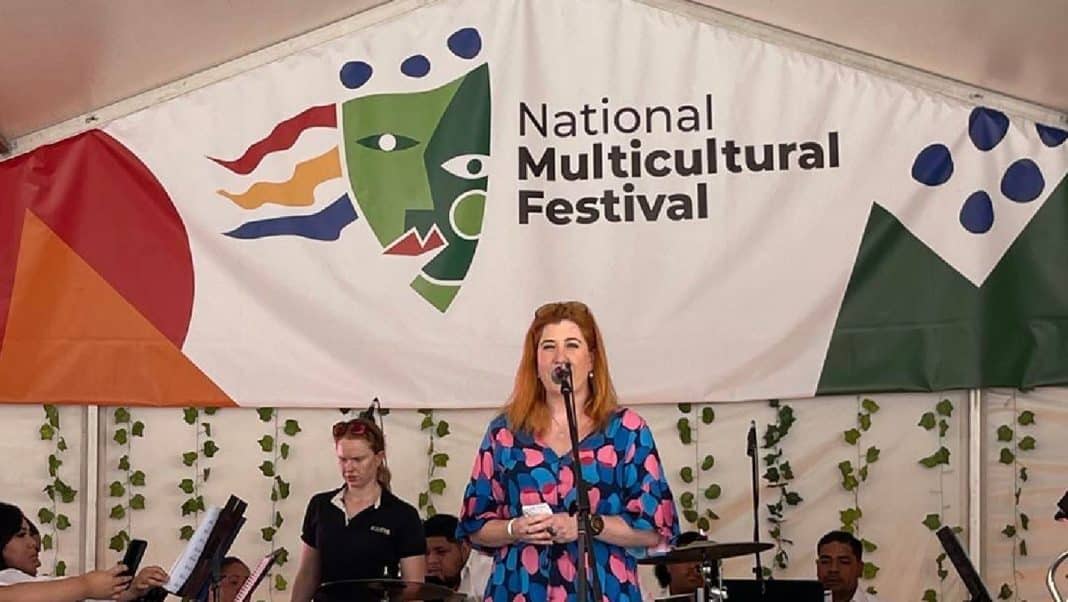The 25th National Multicultural Festival, held in February for the first time since 2020, was the biggest ever, and broke records for attendance and revenue.
It generated $20.8 million for the ACT and enriched Canberra’s reputation as a diverse and multicultural community, Tara Cheyne, ACT Minister for Multicultural Affairs, said.
“After a two-year break due to COVID-19, the MultiCulti returned with a bang,” Ms Cheyne said.
Nearly 274,000 people attended, and many eagerly returned over the three days, contributing to the total attendance of 380,563, which smashed previous records, Ms Cheyne noted. At the last festival, held in 2020, more than 200,000 people came.
The free, community-run festival celebrated 170 cultures found in the ACT, some represented for the first time, including Nepal and Afghanistan. There were 266 stalls, more than 325 performance groups, 34 workshops, 16 cooking demonstrations, a record-breaking 30 cultural showcases, and the largest ever festival parade.
94.7 per cent of survey participants believed the event raises the profile of multicultural communities; 93.1 per cent thought the festival enriches and strengthens Canberra as a diverse and multicultural community; and 93.8 per cent agreed that holding the festival in Canberra creates a real buzz in the city.
More than 40 per cent of Canberra households went to the festival. More than 30,500 visitors came from interstate or overseas; nearly 18,000 of these travelled to the ACT specifically for the event, according to the IER Pty Ltd research report.
The festival substantially boosted the local economy: more than 40,000 visitor nights and a total economic benefit of $20.8 million – large increases from the 2020 figures of 22,000 and $12.2 million respectively.
In 1981, the ACT Ethnic Communities Council held the first festival celebrating cultural diversity, as part of Australia Day. By 1988, the festival had grown to host 40 international food stalls, music, and dancing. The ACT Government first hosted the event, now called the National Multicultural Festival, in 1996.
“I am proud that the scale and economic benefits of the National Multicultural Festival have been achieved by maintaining the strong community origins it began with in the 1980s,” Ms Cheyne said.
This year, the new National Multicultural Festival Community Panel Reference Group engaged with the multicultural community and advised on the festival.
“These wonderful outcomes are due to the efforts and support of so many,” Ms Cheyne said. “I would like to thank everybody involved for your support, including the organisers, volunteers, stallholders, performers, businesses, showcase leaders and the hundreds and thousands of visitors who were entertained, delighted, and fed throughout the event.
“We can’t wait for 2024!”



